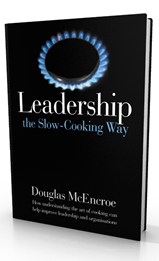I couldn’t help being a little taken aback  with the crowds booing of Rafael Nadal during the final of the Australian Tennis Open in Melbourne. It is true that a lot of people were a little annoyed with Nadal during the semi-final with Federer because of his continuous infringement on the time allowed to take to serve and because of this time absent from the court. Even the temperate Federer complained.
with the crowds booing of Rafael Nadal during the final of the Australian Tennis Open in Melbourne. It is true that a lot of people were a little annoyed with Nadal during the semi-final with Federer because of his continuous infringement on the time allowed to take to serve and because of this time absent from the court. Even the temperate Federer complained.
Being that as it may, it does not explain the rather extreme act of booing a player who is actually pretty popular in Australia. Clearly what happened was that certain members of the crowd, with limited information, made a rather harsh judgement, gave way to negative feelings that come from that judgment and allowed themselves to get carried away by those feelings, to the point of booing. Later when the extent of the injury suffered by Nadal became clear those people who had booed must have felt pretty sheepish, I even bet they would have loved to have taken it back, but unfortunately, it was too late. Once it is out there, it is out there.
It is true that part of the blame must be assigned to the match referee who did not share the information either with Nadal’s opponent nor with the spectators. That however doesn’t change much, for it was clear that nobody besides the referee and the people in Nadal’s change room had the information and people still made a judgement knowing that they didn’t really know what was going on.
Managers who make quick value judgements often pay the consequences
This happens every day in business, managers with limited information jump to conclusions, allow these judgements to create negative feelings and then act on them. Sometimes it is in regard to what senior management is doing, or the performance of a collaborator or the reaction of a client, in almost all cases those managers later regret what that consequently did or said.
Leaders have the responsibility to get the information
Anyone who exercises leadership cannot afford themselves the luxury of making these quick types of judgments. Here are some things that you can do to avoid judging and reacting too quickly:
Recognize that you don’t have all the information.
Invest energy and time in finding out more.
Generate some alternative interpretations and look for data to support those.
If you do have to say something, start by recognising that you don’t have all the facts.
Actively try to distinguish between verifiable facts and interpretations of those facts.
Think of the consequences of saying or doing something and then finding out later that you completely misread the situation.
It is human to judge
I remember back in 1980 getting sucked in by the police, rushing to get a quick conviction and by the press, experts of condemning without the facts, whipping up public sentiment against Lindy Chamberlain whose baby was taken by a dingo.
I remember celebrating along with most other Australians Lindy Chamberlain’s murder conviction. Thirty-two years later the Northern territory Coroner Elizabeth Morris found that the baby Azaria had actually been taken by a dingo and that Chamberlain’s conviction was based on faulty forensic work. Years before, in 1988, Lindy Chamberlain was released from jail as it was clear that she had not murdered her daughter. When that happened I, along with many others felt ashamed of the lack of rigor and generosity of spirit in making such a quick and harsh judgment. I said to myself that I will never let that happen again. To this day I have tried to honour that decision, but it is not easy for it is human to judge.
If you want to avoid feeling that, think twice, get the information and use one of the most important qualities in leadership, generosity.





No Comments so far ↓
There are no comments yet...Kick things off by filling out the form below.